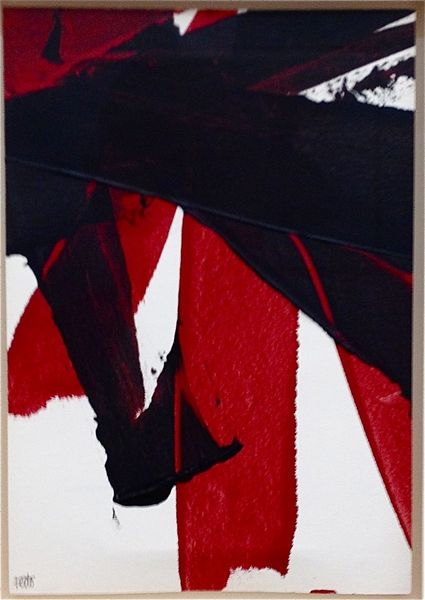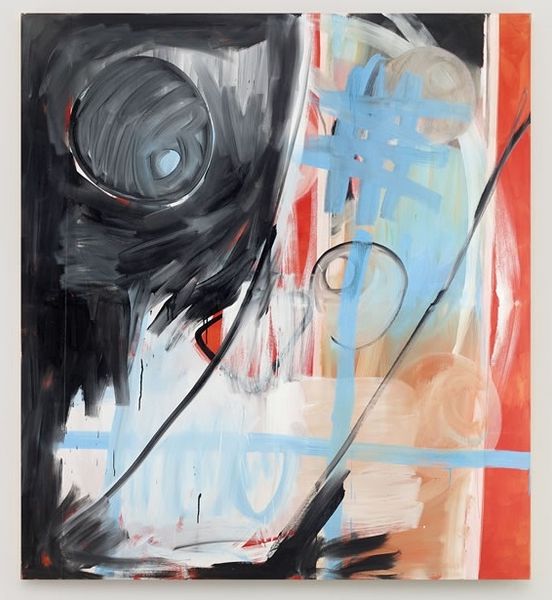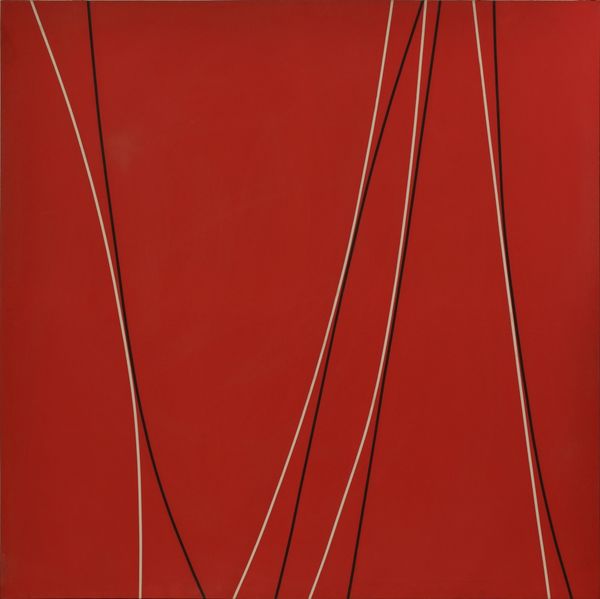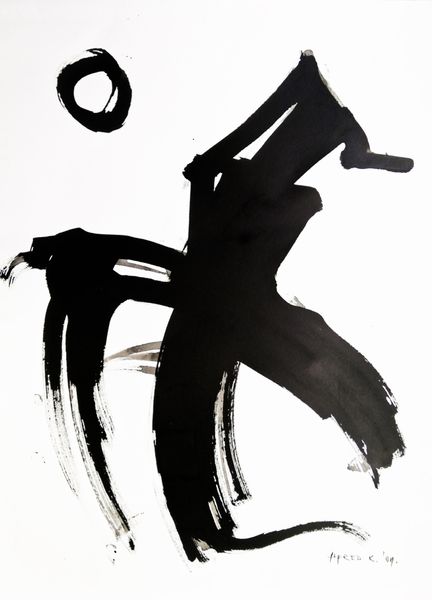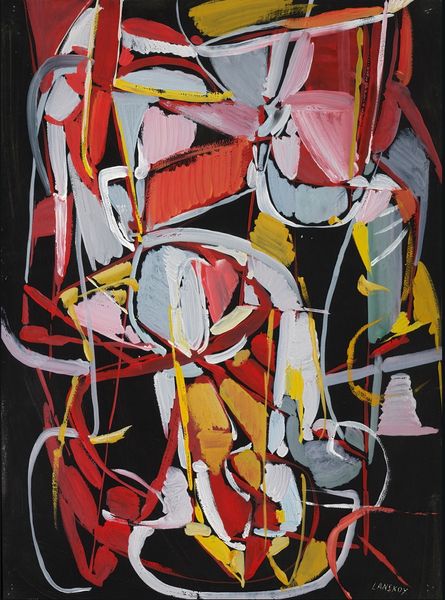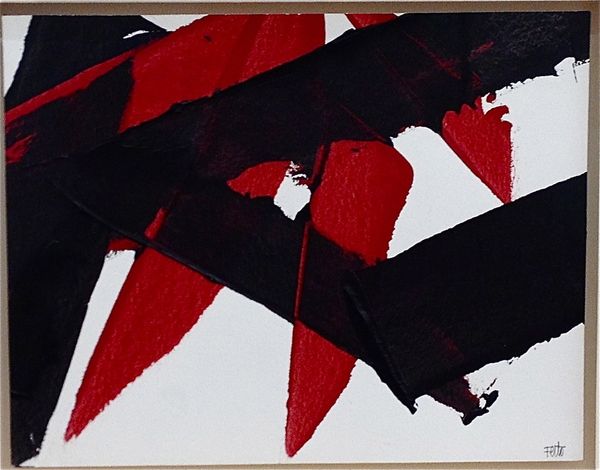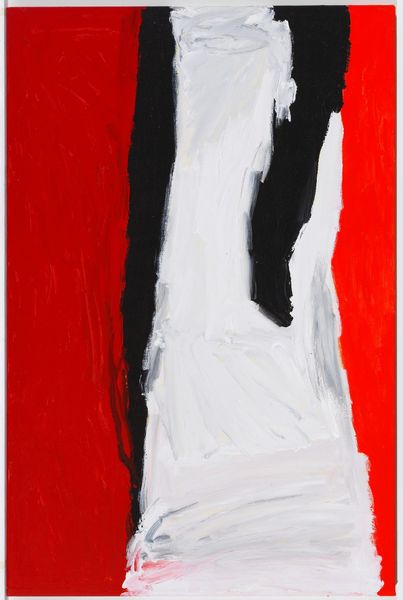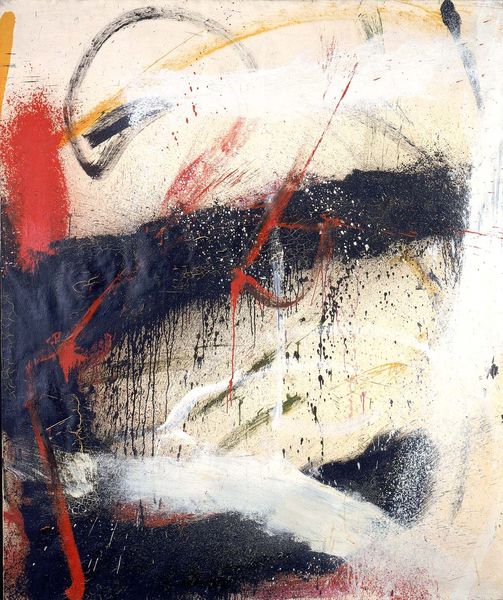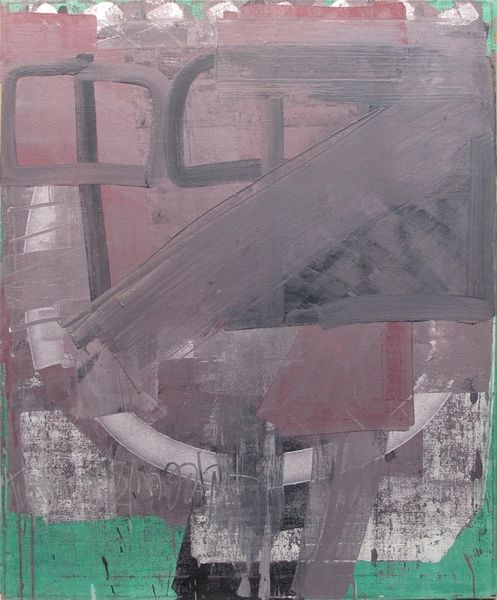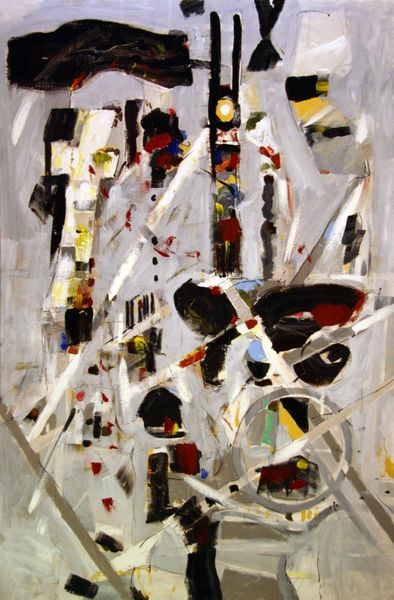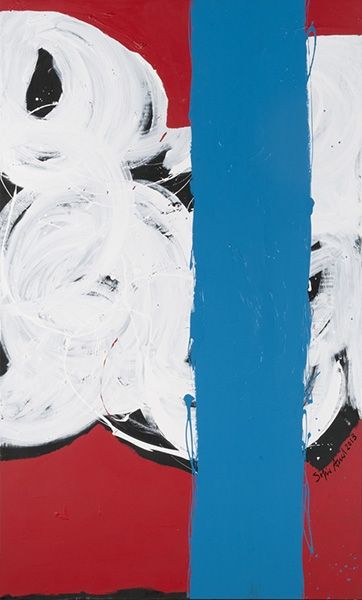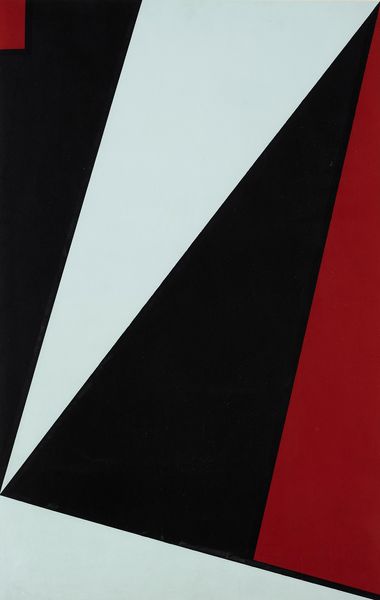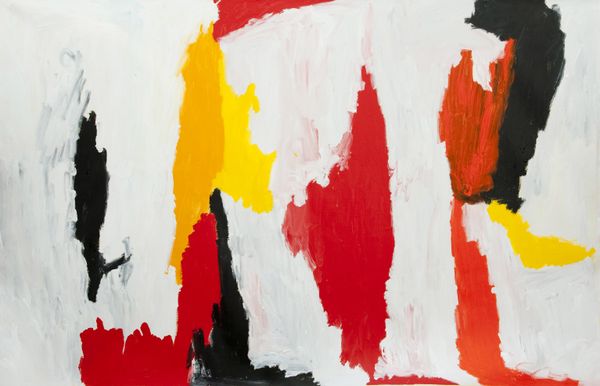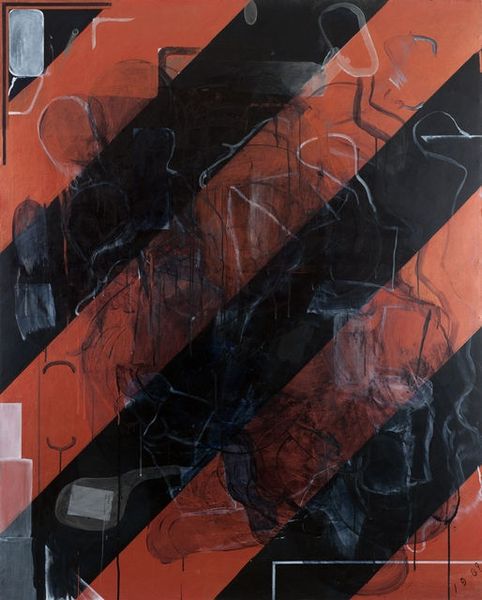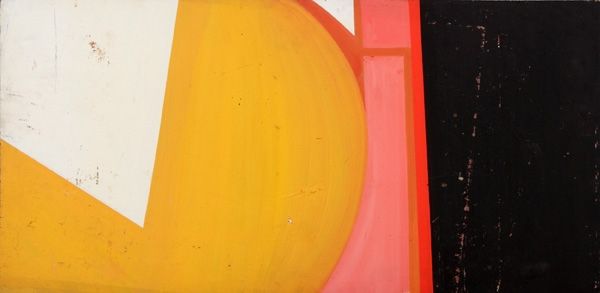
Copyright: Aki Kuroda,Fair Use
Editor: This intriguing "Untitled" piece, created in 1987 by Aki Kuroda, features bold strokes of acrylic paint on canvas. It’s dominated by black, red, and white, arranged in a circular format. I find the high contrast visually arresting and emotionally intense; it feels like looking into a fragmented dream. What’s your interpretation of this striking composition? Curator: It’s like the canvas is a porthole, isn’t it? We're peering into some inner realm. The portrait tag is interesting… It’s certainly not a conventional portrait. But I can imagine that Kuroda wasn't necessarily after a likeness, rather trying to capture a *feeling*, a psychological landscape perhaps. What do you make of the framing - that square implied by the gray lines? Editor: That implied square feels precarious, almost like the central figure, or whatever is *implied* to be in the center of the painting, is on the verge of collapsing out of the frame. Curator: Precisely! It speaks to the dynamism and tension inherent in expressionism. And Kuroda was so involved in the theatre… doesn't it make you think of a stage set? This interplay between order and chaos, figuration and abstraction… it mirrors life, doesn't it? It doesn't reveal itself all at once, but through feeling and experiencing it. I suppose my interpretation is, maybe it's not something we "look at" but rather that we're able to simply "look in". Editor: Absolutely! I didn't see it at first, but thinking of it as a stage really helps unlock its potential narrative. Curator: Art is a reciprocal arrangement. It only offers back what you bring. And the more open you are to experiencing a work and bringing a personal vision to it, the more fulfilling it will become. It offers us an opening in the theatre of the mind, you might say. Editor: Well, I definitely walked away seeing much more than when I came in. Curator: Then Kuroda's done his job! It gives you a good idea about not placing strict rules when understanding what portraiture, abstraction and stage design is, right? Editor: Indeed, it has! Thanks for sharing this different view of abstraction and neo expressionism!
Comments
No comments
Be the first to comment and join the conversation on the ultimate creative platform.
